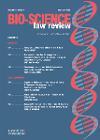Bio-Science Law Review - Volume 15 - Issue 4

ARTICLES
Henry Carr J Jabs Patentability in Men B Case
AILSA CARTER Gowling WLG
This article discusses how Henry Carr J took the opportunity presented in GSK v Wyeth ([2016] EWHC 1045 (Ch), 12 May 2016) to explain in clear, concise and readily citable summaries, the legal tests for many aspects of patentability. The patent in issue, Wyeth’s Meningitis B vaccine patent, was held valid and infringed by GSK’s Bexsero vaccine
The Impact of the New EU Nagoya Protocol Compliance Regime on the Cosmetics Industry as Illustrated by Sophora Japonica
BART VAN VOOREN Covington & Burling LLP
Over the years there have been global news reports of ‘bio-piracy’ by companies accused of illegally profiting from blockbuster cosmetics derived from developing countries’ rich biodiversity. This perception stimulated the adoption of the 2010 Nagoya Protocol, to implement the objective of the 1992 Convention on Biological Diversity that benefits arising out of R&D on genetic resources should be fairly shared with the country of origin. Since October 2014, strict rules have applied in the European Union to enforce compliance with the Nagoya Protocol. However, it would be wrong to assume that the new EU Regulation only encompasses bio-prospecting or ethno-pharmacological R&D. Instead, the EU has deliberately set up a broad regime that affects companies developing cosmetics, pharmaceuticals, biocides, as well as food, beverages, and any of their components. This article explains the impact of the EU Nagoya compliance regime for the cosmetics sector, using ‘Sophora Japonica’ (Japanese pagoda tree) and the flavonoid ‘rutin’ as an illustration.
Compulsory Licences and Patent Revocations: Does Public Interest Rule the Roost?
ADARSH RAMANUJAN Lakshmikumaran & Sridharan, New Delhi
Indian patent law has been under the scanner for a long time, in particular because of its compulsory licensing system and what is considered by many to be restrictive patentability criteria. These are but two illustrations of how public interest considerations have been woven into Indian patent law since its inception. However, to focus only on such specific areas does not necessarily give a complete picture and on many occasions may result in businesses taking impulsive decisions about managing their Indian patent portfolio. The article describes how public interest considerations pervade the entire scheme of India patent law and the balance it seeks to achieve with granting exclusive IP rights, in the hope that a better understanding on this scheme may be useful in navigating Indian patent law from a more strategic perspective. The article explains some of the lessons from past experiences of the Indian compulsory licence system, and outlines recent patent litigation developments and other controversies surrounding biotechnology patents
CASE COMMENTS
Regulatory Guidance: The Importance of Clarity R (Richmond Pharmacology Ltd) v Health Research Authority
CHRIS WARBURTON Gowling WLG
The High Court of England and Wales recently considered a legal challenge brought against the Health Research Authority’s public guidance documents on the basis that they were misstating the nature of the relevant legal requirements. Despite findingthat the guidance had not unequivocally stated that there was a legal requirement where none existed, the court held that the guidance documents were nonetheless unlawful on the
basis that they were so ambiguous as to mislead the informed reader. The court ultimately performed a detailed forensic analysis of the relevant documents to determine whether, as a whole, they were sufficiently clear.
Antimicrobial Resistance: A Brief Review of the O'Neill Report
ASAWARI CHURI Pinsent Masons LLP
The Review on Antimicrobial Resistance, chaired by Lord Jim O’Neill, brings into focus the global threat posed by drug resistant bacteria. In a series of reports, the review identifies key areas of concern and proposes ways to address them. The final report, published in May 2016, presents a comprehensive global action plan to combat the threat.
Genentech: The Court of Justice of the EU Rejects a Competition Law Defence in a Patent Royalty Action
MICHELE GIANNINO Desogus Law Office, Cagliari, Italy
By the preliminary ruling made in Genentech, the Court of Justice of the EU (CJEU) has found that a licensor of a patented invention who requires the licensee to pay a royalty for the use of that invention for the entire period in which the licence agreement is in force, regardless of whether the patent has been revoked or not infringed, does not breach Article 101 TFEU. In the CJEU’s view, the licensee’s obligation to pay the royalty does not amount to a competition restraint provided that the licensee is free to terminate the licence agreement at any time.
